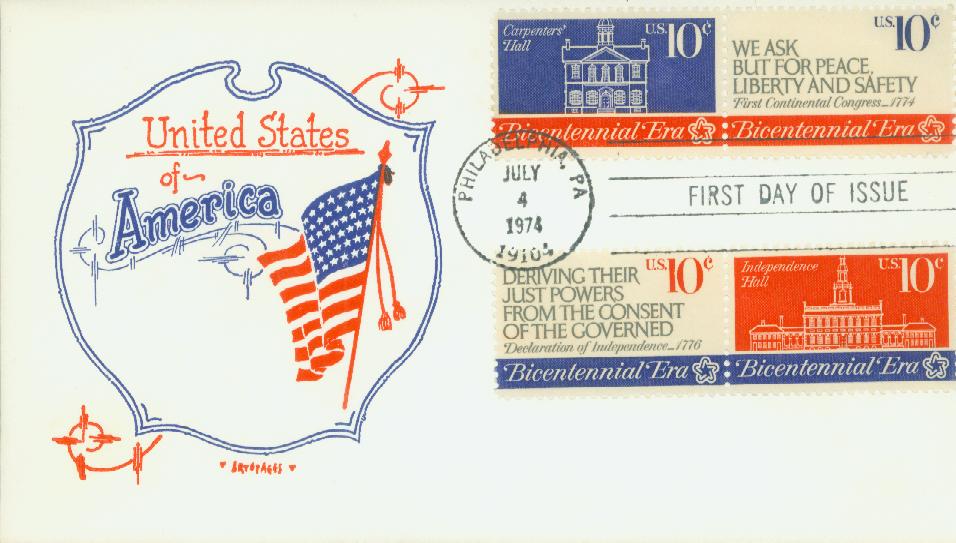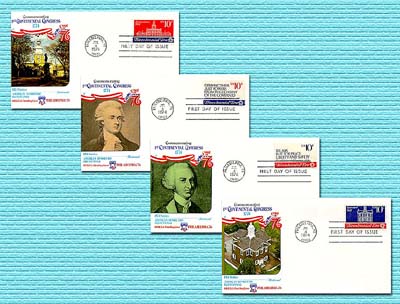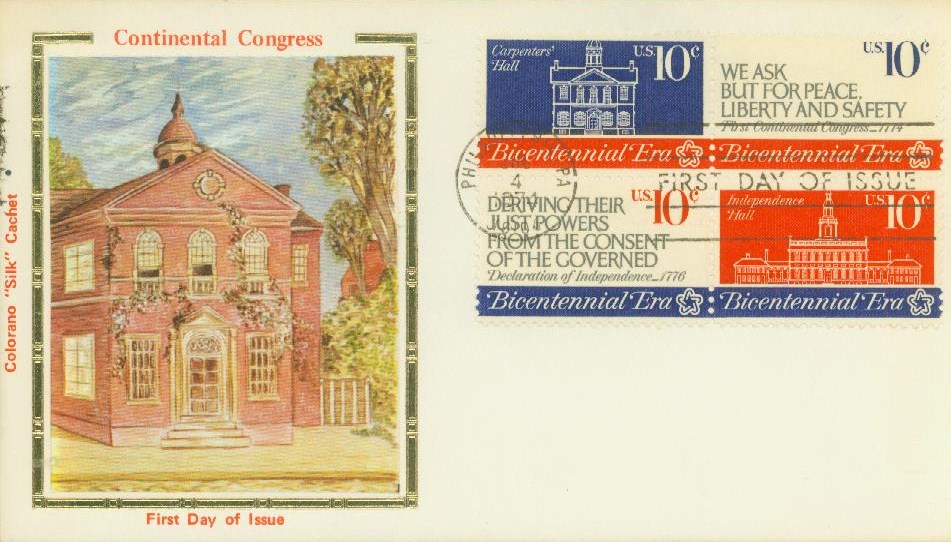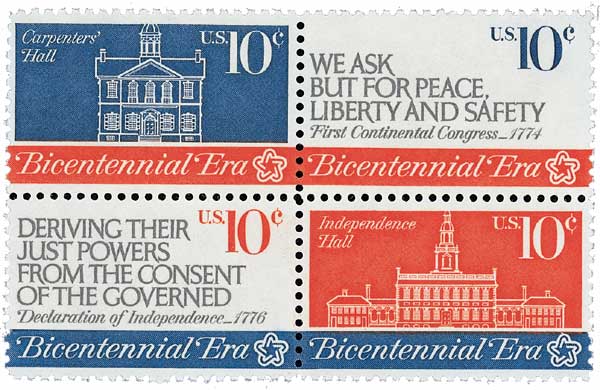
# 1543-46 FDC - 1974 10c First Continental Congress
Set of Four
First Continental Congress
In 1774, the British Parliament passed a series of laws that the American Colonies called the Intolerable Acts. Their purpose was to punish Massachusetts for the Boston Tea Party and prevent uprisings in other areas.
The laws, including the closing of Boston’s harbor and removal of the state’s government, were part of a continuing effort by Great Britain to increase its control over the colonies. The citizens resented the laws imposed on them without their consent.

Colonists felt the rules were a threat to their rights and called for the First Continental Congress to discuss the situation. Each colony voted on who to send to represent them. In the end, representatives from 12 colonies participated. However, in Georgia, the loyalists outvoted the supporters of the congress, so that colony didn’t participate.

The congress opened on September 5, 1774, in Philadelphia’s Carpenter Hall. It marked the first time the colonies gathered together to resist English oppression. In the opening days of the Congress, it became apparent that the delegates had different ideas of why they were there. Some believed they were there to create policies that would force Parliament to end the Intolerable Acts. Others wanted to establish the rights and liberties of the colonies and end the abuses of the Parliament. Some denied the Parliament’s authority and some wanted to create an entirely new government separate from Great Britain.

By the time the Congress ended on October 26, the delegates reached a compromise. They passed the Continental Association and the Declaration of Resolves. These formed an agreement to boycott British goods beginning in December. They would also block exports to England in September 1775 if the Intolerable Acts weren’t repealed. The Congress also made plans for the Second Congress the following year if the issues weren’t resolved.
Rather than coming to their aid, the king declared the colonists “rebels” and called for the arrest of the “traitors” who made up the Congress. Within a year, the first battles of the American Revolution would take place.
Set of Four
First Continental Congress
In 1774, the British Parliament passed a series of laws that the American Colonies called the Intolerable Acts. Their purpose was to punish Massachusetts for the Boston Tea Party and prevent uprisings in other areas.
The laws, including the closing of Boston’s harbor and removal of the state’s government, were part of a continuing effort by Great Britain to increase its control over the colonies. The citizens resented the laws imposed on them without their consent.

Colonists felt the rules were a threat to their rights and called for the First Continental Congress to discuss the situation. Each colony voted on who to send to represent them. In the end, representatives from 12 colonies participated. However, in Georgia, the loyalists outvoted the supporters of the congress, so that colony didn’t participate.

The congress opened on September 5, 1774, in Philadelphia’s Carpenter Hall. It marked the first time the colonies gathered together to resist English oppression. In the opening days of the Congress, it became apparent that the delegates had different ideas of why they were there. Some believed they were there to create policies that would force Parliament to end the Intolerable Acts. Others wanted to establish the rights and liberties of the colonies and end the abuses of the Parliament. Some denied the Parliament’s authority and some wanted to create an entirely new government separate from Great Britain.

By the time the Congress ended on October 26, the delegates reached a compromise. They passed the Continental Association and the Declaration of Resolves. These formed an agreement to boycott British goods beginning in December. They would also block exports to England in September 1775 if the Intolerable Acts weren’t repealed. The Congress also made plans for the Second Congress the following year if the issues weren’t resolved.
Rather than coming to their aid, the king declared the colonists “rebels” and called for the arrest of the “traitors” who made up the Congress. Within a year, the first battles of the American Revolution would take place.













